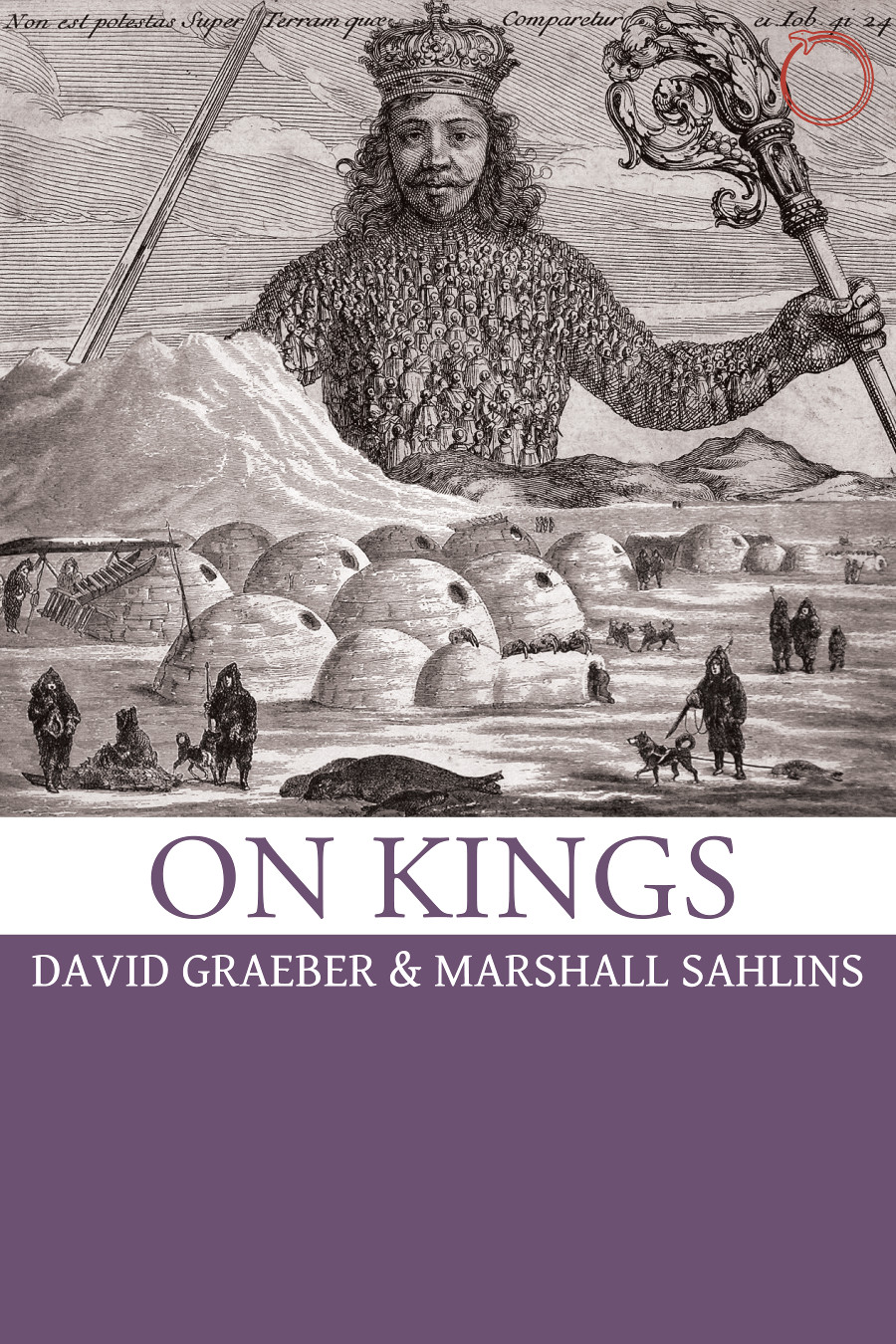David Graeber, Marshall Sahlins: On Kings (2017)
Filed under book | Tags: · anthropology, authority, kinship, labour, myth, politics, production, ritual, royalty, sovereignty, state, violence

“In anthropology as much as in popular imagination, kings are figures of fascination and intrigue, heroes or tyrants in ways presidents and prime ministers can never be. This collection of essays by two of the world’s most distinguished anthropologists—David Graeber and Marshall Sahlins—explores what kingship actually is, historically and anthropologically. As they show, kings are symbols for more than just sovereignty: indeed, the study of kingship offers a unique window into fundamental dilemmas concerning the very nature of power, meaning, and the human condition.
Reflecting on issues such as temporality, alterity, and utopia—not to mention the divine, the strange, the numinous, and the bestial—Graeber and Sahlins explore the role of kings as they have existed around the world, from the BaKongo to the Aztec to the Shilluk and beyond. Richly delivered with the wit and sharp analysis characteristic of Graeber and Sahlins, this book opens up new avenues for the anthropological study of this fascinating and ubiquitous political figure.”
Publisher HAU Books, Chicago, 2017
Creative Commons BY License
ISBN 0986132500, 9780986132506
xv+536 pages
Laura Bear, Karen Ho, Anna Tsing, Sylvia Yanagisako: Gens: A Feminist Manifesto for the Study of Capitalism (2015)
Filed under manifesto | Tags: · anthropology, capitalism, feminism, gender, kinship, manifesto
“Our title signals a major redefinition of the multilayered historical meanings of the term gens. Gens began as the Roman concept of a family unit descended from a common male ancestor and was scaled up to social distinctions like aristocratic lineage. It was transformed by Lewis Henry Morgan to found the anthropological study of kinship and reveal the “original” matriarchal origins of community. Friedrich Engels then drew on Morgan to argue that the patriarchal form of gens led to the end of matriarchal systems. Gens is also, of course, the etymological root of gender, genus, genre, generations, and generate. We find this term broadly helpful because it carries a long history of the appropriation of human and non-human life-forces by social forms. Its varied usage inspires reflection on the depictions of these life-forces that in turn contribute to forms of social inequality. Moreover, it specifically refers to a history of contradictions between male authority and female kinship ties that signals the mix of capture and generativity that characterizes all social power. Finally, by adopting this term, we play with the irony that a patriarchal unit provides the root for the word gender even as we found our approach to capitalism on a more liberating (but hidden) ancestry of feminist analyses of gender, kinship, and race, as well as other forms of epistemological insights garnered from the margins.” (opening paragraph)
Part of the series Generating Capitalism, Fieldsights – Theorizing the Contemporary, Cultural Anthropology Online, March 2015.
Commentary: Donna Haraway (EnviroHumanities 2015, see note 16)
Comment (0)
